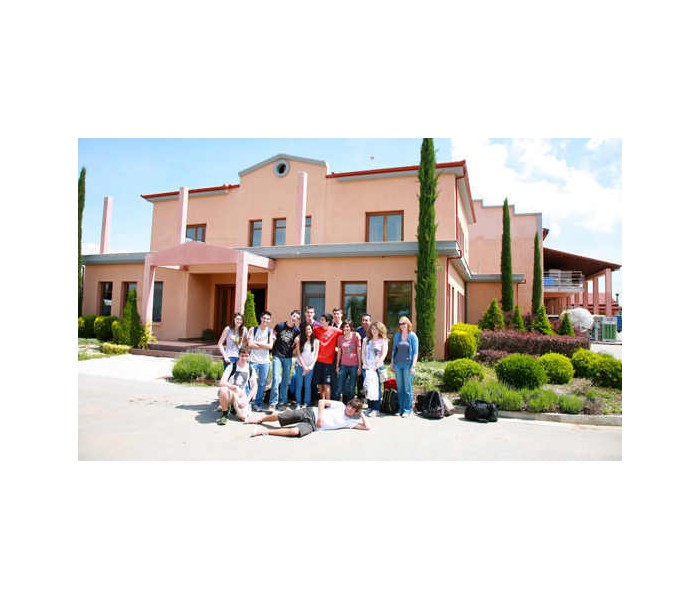IB1 Students visit the Alpha Vineyard
May 31, 2012

On Friday May 25 eleven IB1 students set out on a trip aimed at enriching their knowledge of wine making. All our IB1 students began planning and carrying out biology, chemistry and physics experiments, to discover which factors influence the wine making process, some two weeks ago. As a result the students on the trip already had a fair understanding of what goes on in a winery and were equipped with a multitude of questions. The Alpha Vineyard at Amyntaio proved to be the ideal location for students to find out the answers.
Set in the valley between three mountains our guide explained that the ‘micro-climate’ of the vineyard and the sandy soil deposited by an ancient lake were ideal for growing grapes suitable for wine making. She distinguished between the treatments necessary for different wines and the emphasized the invaluable contribution of science to Alpha wines. From an on-site weather station, which provides daily local forecasts, to the high technology infra-red spectrometer that produces data, including the sugar content of grape juice, in seconds. So complex is the science of wine making that our students also discovered that there are graduate courses dedicated solely to this purpose!
The focus of our second day was a trip to the Arktouros bear and wolf sanctuaries where we learned about the challenges of protecting the wildlife in Greece. Despite the misty, wet conditions our students happily trudged down slippery mountainsides to help feed the bears apples and honey. In fact the weather conditions enabled us to meet more of the mountain’s inhabitants as a number of black and yellow salamanders crossed our path!
In addition to these two highly unique experiences students (and teachers!) also rode mountain bikes, hiked over a mountain, canoed, got drenched and finally had hands-on experience of trekking on horseback. All in all we enjoyed a great Group 4 science trip with our students flying the flag high for Pinewood.
Dr. Clare Squires
Science Department


